Abstract
Three general classes of algorithms have been proposed for figure/ground segregation. One class attempts to delineate figures by searching for edges, whereas another class attempts to grow homogeneous regions; the third class consists of hybrid algorithms, which combine both procedures in various ways. The experiment reported here demonstrated that humans use a hybrid algorithm that makes use of both kinds of processes simultaneously and interactively. This conclusion follows from the patterns of response times observed when humans tried to recognize degraded polygons. By blurring the edges, the edge-detection process was selectively impaired, and by imposing noise over the figure and background, the region-growing process was selectively impaired. By varying the amounts of both sorts of degradation independently, the interaction between the two processes was observed.
Full text
PDF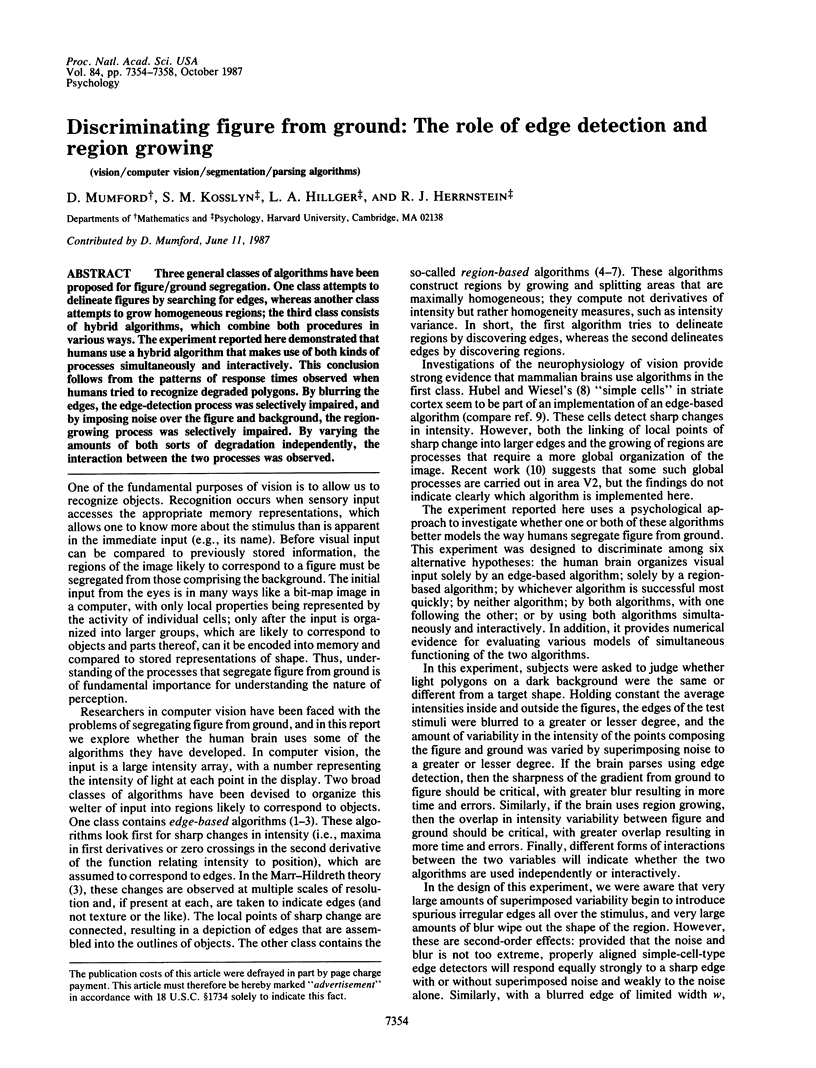
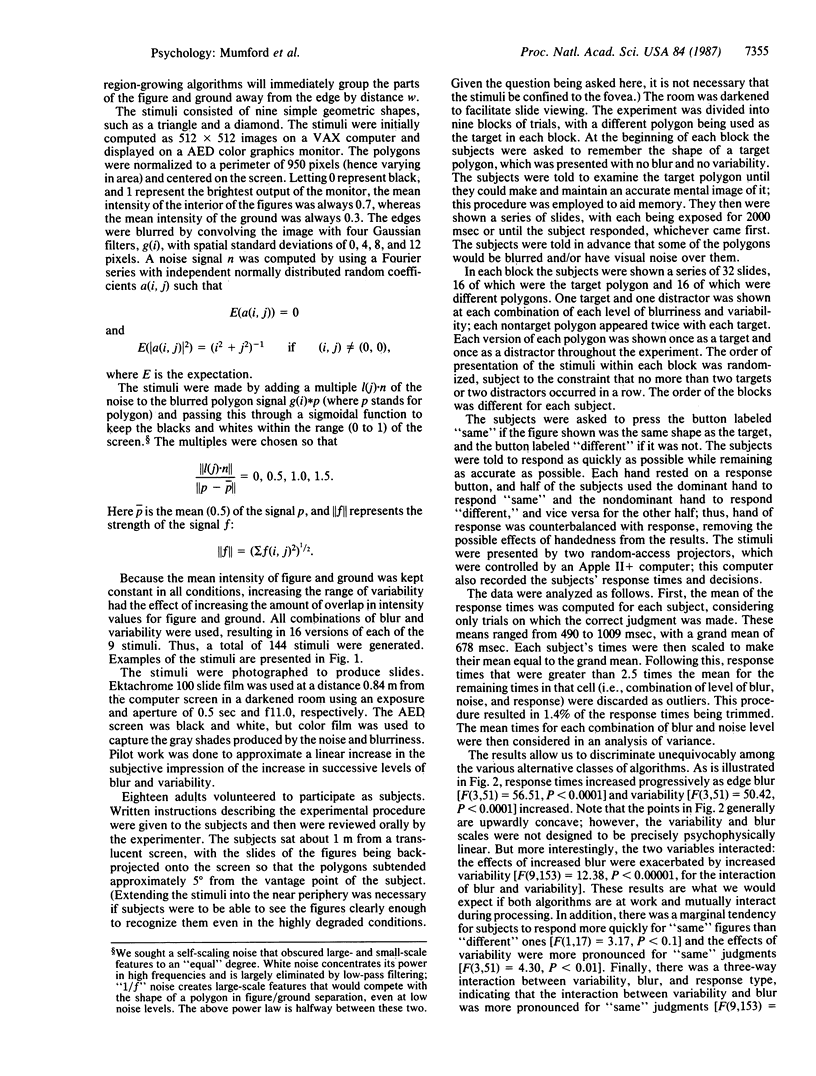
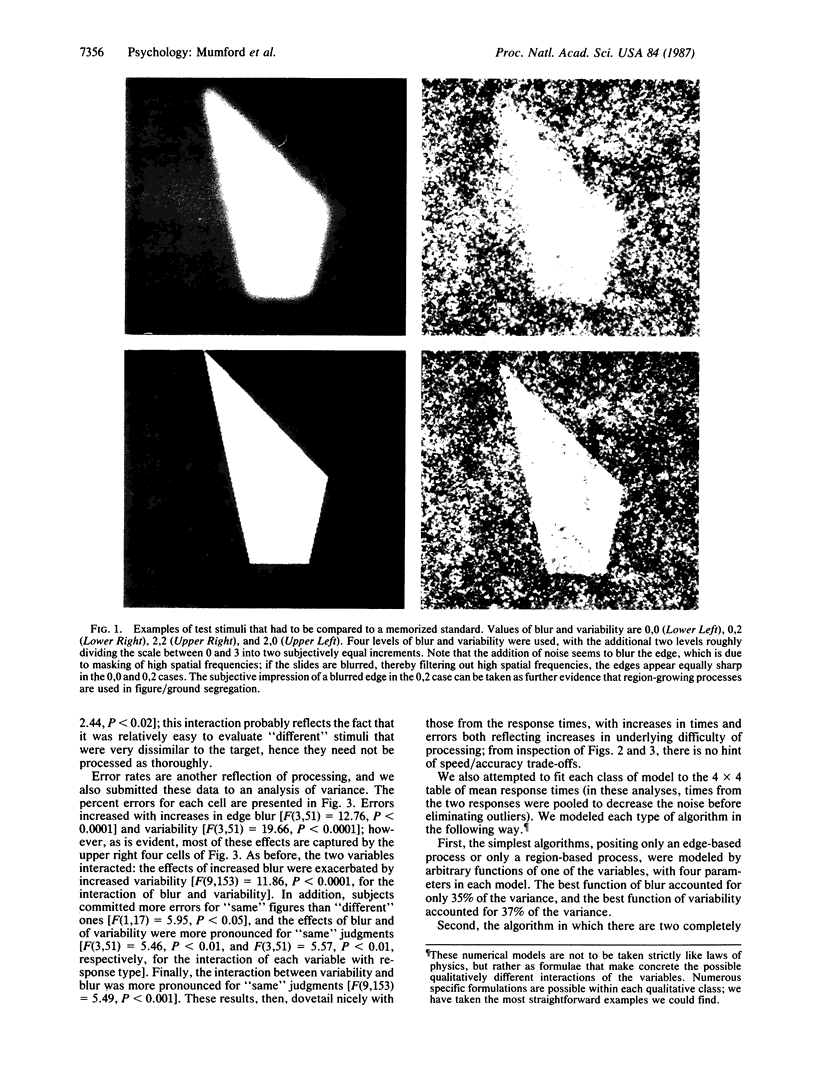
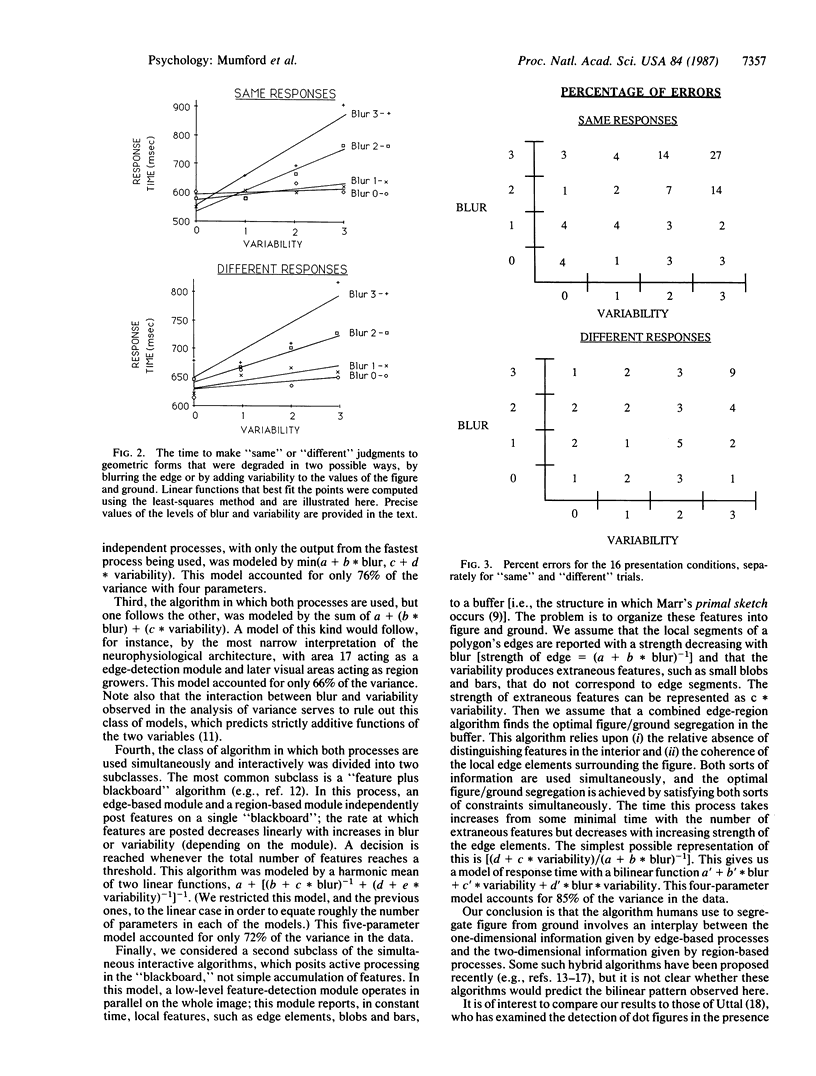
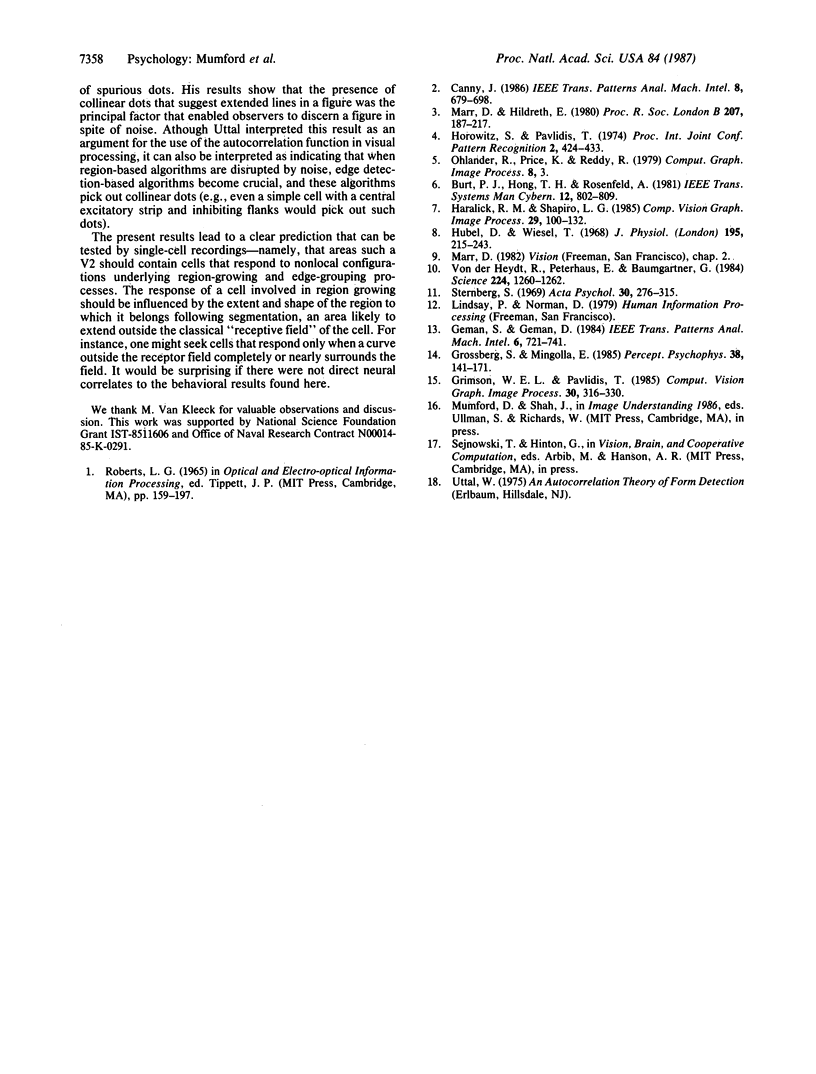
Images in this article
Selected References
These references are in PubMed. This may not be the complete list of references from this article.
- Grossberg S., Mingolla E. Neural dynamics of perceptual grouping: textures, boundaries, and emergent segmentations. Percept Psychophys. 1985 Aug;38(2):141–171. doi: 10.3758/bf03198851. [DOI] [PubMed] [Google Scholar]
- Hubel D. H., Wiesel T. N. Receptive fields and functional architecture of monkey striate cortex. J Physiol. 1968 Mar;195(1):215–243. doi: 10.1113/jphysiol.1968.sp008455. [DOI] [PMC free article] [PubMed] [Google Scholar]
- Marr D., Hildreth E. Theory of edge detection. Proc R Soc Lond B Biol Sci. 1980 Feb 29;207(1167):187–217. doi: 10.1098/rspb.1980.0020. [DOI] [PubMed] [Google Scholar]
- von der Heydt R., Peterhans E., Baumgartner G. Illusory contours and cortical neuron responses. Science. 1984 Jun 15;224(4654):1260–1262. doi: 10.1126/science.6539501. [DOI] [PubMed] [Google Scholar]







